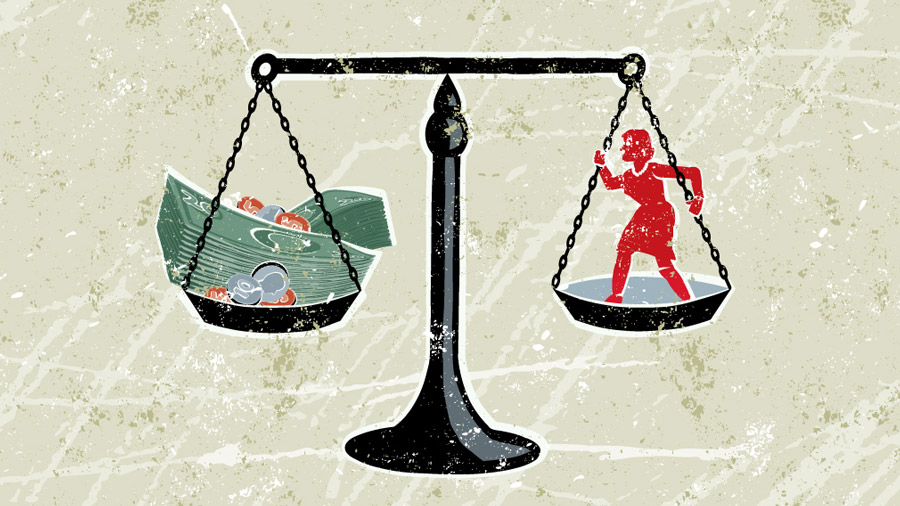
Briefing: The definition of discrimination arising from disability
How is discrimination arising from disability defined? If an employer dismisses or disciplines a disabled employee for misconduct, are they safe from a discrimination claim or might the employee claim that the misconduct was, in some way, connected to their disability and thereby wield the Equality Act in their defence?
In this briefing, Sita Douglas, HR & Employment Law Specialist at rradar investigates when discrimination applies.
Section 15 of the Equality Act says that discrimination arises from disability when “A (the employer) treats B (the employee) unfavourably because of something arising in consequence of B’s disability; and A cannot show that the treatment is a proportionate means of achieving a legitimate aim.”
The phrase “something arising in consequence of” is very broad and allows a good deal of interpretation. This is not always a good thing for employers as a cogent and well-argued case presented by a claimant to a tribunal may well persuade them of the merit of the case.
Such was the situation in Risby v London Borough of Waltham Forest UKEAT/0318/15.
What happened?
Mr Risby had worked for the London Borough of Waltham Forest for 23 years. He had been disabled for all of that time. He has a volatile temper, which is not related to his disability.
The incident began when the council organised a manager workshop at a private venue that had wheelchair access. However, after organising the event, the council’s chief executive decided to cut back on costs by relocating the workshop to council premises which did not have wheelchair access.
On finding out about the change, Risby was extremely annoyed, as might have been expected, given his short temper. He used some intemperate language, including racist terminology. A colleague believed that the comments were directed at her and as a consequence of this, Risby was the subject of an investigation for gross misconduct, which resulted in his dismissal.
He took his employer to the Employment Tribunal, claiming unfair dismissal and disability discrimination.
The Tribunal said that since his hot temper was not connected to his disability and had, so it appeared, been the cause of his outburst, there was no discrimination under Section 15 of the Equality Act.
Risby appealed this decision and the Employment Appeal Tribunal took a different view of the case, looking at it through the lens of the phrase ‘something arising in consequence of the disability’.
They observed that were it not for the lack of wheelchair access, Risby’s loss of temper would not have happened, and wheelchair access was indeed directly related to his disability.
The misconduct of which he stood accused had happened because of two reasons – his short temper, the gunpowder of the incident, had exploded due to the fuse of wheelchair access, intimately connected to his disability, being lit. No fuse, no explosion.
Taken in this way, the Appeal Tribunal’s decision broadens the interpretation of Section 15 quite extensively. Rather than being a direct A to B link between the disability and the discrimination, there are now a series of links that could lead to the unfavourable treatment. A connection, even a very loose one, would now appear enough to start a claim.
The Employment Appeal Tribunal also observed that if the misconduct occurred as a consequence of Risby’s disability then it was perfectly possible that another sanction rather than dismissal may have been more appropriate and therefore the dismissal was unfair.
The Appeal Tribunal’s verdict notwithstanding, there remained the fact that Risby had used racist language in the presence of a colleague who interpreted it as being directed at her. The case was sent back to the Tribunal, who were asked to look at whether the council’s reaction was a proportionate means of achieving the legitimate aim of enforcing an equal opportunities policy – in this case, by punishing racist language or behaviour. The council would have to show that their reaction was proportionate and their aim legitimate. If they could not show this, Risby’s discrimination claim would succeed.
What should employers do?
It’s clear from the case that employers need to tread carefully when considering disciplinary action against disabled employees. Thought should be given to whether actions or words that might constitute misconduct could have arisen from a situation that is directly connected to the employee’s disability.
- Employers must ensure that they have made reasonable adjustments for disabled employees if they would be placed at a substantial disadvantage by a feature of the business’ operating procedures or a physical feature of the workplace. If those reasonable adjustments are not made (such as moving a workshop at which disabled people will be present to a venue without wheelchair access), a disabled employee may argue that their subsequent misconduct – for example, an angry outburst in the workplace – arises from their disability.
- If there is an incident where an employee’s behaviour can be categorised as misconduct, whatever disciplinary action is taken by the employer should be proportionate and in pursuit of a legitimate aim, which could be to promote and enforce compliance with the company policy on staff conduct.







